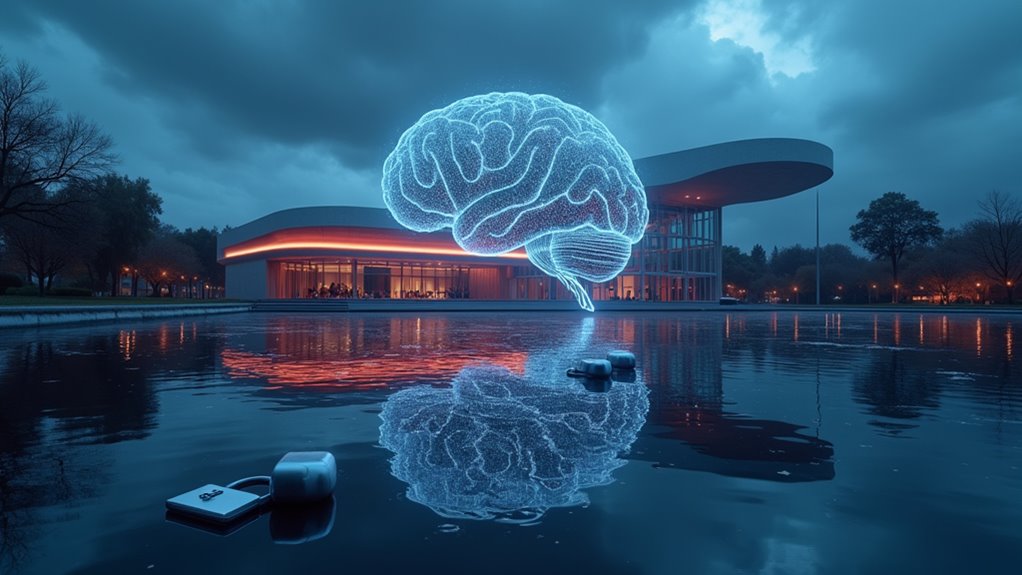Trump’s Executive Order 14179 launches a full-scale assault on “woke AI,” requiring federal contractors to scrub ideological bias from their systems while simultaneously gutting regulatory guardrails that once restrained Silicon Valley’s algorithmic ambitions. The January 23rd order establishes new “Unbiased AI Principles” and designates Chief AI Officers across agencies to police compliance by April 2026. Meanwhile, a massive $500 billion Stargate investment promises to turbocharge American AI dominance globally—though the long-term consequences of this deregulation bonanza remain murky.
While most Americans were still recovering from inauguration hangovers, Donald Trump was already reshaping the country’s artificial intelligence strategy with the stroke of a pen. Executive Order 14179, issued January 23, 2025, marked a dramatic pivot from his predecessor’s cautious approach to AI governance.
The new order reads like a Silicon Valley wish list—removing federal regulations** that tech companies claimed were stifling innovation. Gone is Biden’s focus on oversight and risk mitigation, replaced by what amounts to an AI gold rush mentality. The administration’s action plan identifies over 90 policy changes** designed to cement America’s technological dominance.
But here’s where things get interesting. Trump’s team isn’t just deregulating; they’re actively combating what they call “woke AI.” New procurement guidelines require government contractors to guarantee their AI systems maintain “objectivity and ideological neutrality.” These efforts aim to address what critics note is the data quality issue where AI systems often inherit and amplify human biases from their training datasets.
Translation? No more ChatGPT telling you about systemic racism or climate change.
The administration has introduced “Unbiased AI Principles” as federal policy, explicitly targeting what they see as “top-down ideological bias” in AI systems. Federal agencies must now track and discontinue AI applications that fail these new bias mitigation standards by April 2026.
Each federal agency gets a Chief AI Officer—think of them as AI czars responsible for both innovation and ideological compliance. They’ll conduct “AI adoption maturity assessments” because apparently, even artificial intelligence needs report cards now.
The international strategy focuses on exporting American-built AI systems to allies, fundamentally creating a technological sphere of influence. Commerce and State Departments will push American AI “stacks”—hardware, software, models, the whole enchilada—as diplomatic tools. The initiative aims to enhance human flourishing while strengthening America’s competitive position globally. The Stargate company was established with a $500 billion investment to enhance AI infrastructure capabilities.
Trump’s team is backing this vision with serious money: $90 billion pledged for energy and data center investments. They’re even creating job training programs for electricians and HVAC technicians, because someone needs to keep all those AI servers cool.
Whether this approach delivers the promised American AI dominance or simply unleashes unintended consequences remains to be seen. One thing’s certain—the age of cautious AI governance is officially over.









